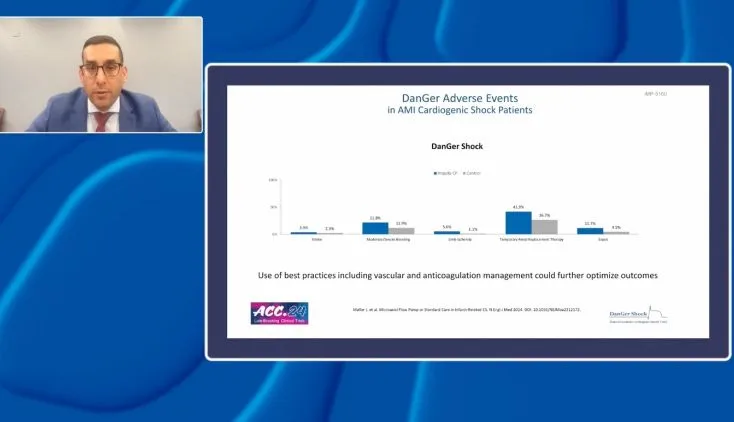AMI Cardiogenic Shock
Successful Mechanical Circulatory Support (MCS) in Cardiogenic Shock Patients
by Norman Mangner, Jacob Møller, Holger Thiele, Federico Pappalardo
Key Topics and Take Aways:
- Experts throughout Europe have contributed to this European Heart Journal supplement with articles discussing best practices for successfully managing mechanical circulatory support (MCS) in patients with cardiogenic shock.
- Articles cover topics from appropriate patient and device selection to best practices for timing, monitoring, escalation and weaning.
- These articles highlight the ongoing need for overarching guidelines on patient care decisions for cardiogenic shock.
This European Heart Journal supplement contains eight articles, including this overview, that provide expert knowledge on best practices for successfully managing mechanical circulatory support (MCS) in patients with cardiogenic shock (CS). These articles discuss the increasing usage of percutaneous ventricular assist devices (pVADs) such as microaxial flow pumps (eg, Impella® Heart Pump), veno-arterial extracorporeal membrane oxygenation (VA ECMO) and ECpella (the combination of Impella and VA ECMO).
Experts throughout Europe have written these articles based on data from retrospective and prospective registries, as well as personal and global expertise. The goal of this contemporary and comprehensive overview is “to provide the reader with expert knowledge on the clinical approach to the most important phases of pVAD patient management.”
“This multidisciplinary compilation from experts throughout Europe provides a powerful opportunity to highlight the ongoing need for overarching guidelines on patient care decisions.”
Topics range from appropriate patient and device selection to best practices for timing, monitoring, escalation and weaning. These articles highlight the ongoing need for overarching guidelines on patient care decisions for MCS in cardiogenic shock.
- Patient identification and selection—Since some patients may receive more benefit from pVAD support than others, it is important to examine SCAI shock classification, gender-related differences in CS and different CS phenotypes.
- Basic principles and device selection—Algorithms for device selection based on device characteristics, along with best practice for insertion techniques and periprocedural management can help clinicians navigate device selection and treatment strategy decisions.
- Timing and treatment strategies—With timing of pVAD initiation often impacting outcomes, key strategies incorporate optimal timing for initiation of microaxial flow pumps, VA ECMO and ECpella; revascularization strategies in patients with acute myocardial infarction cardiogenic shock (AMICS); and shock networks and transportation for these critically ill patients.
- Patient management and monitoring—Best practices for managing pVADs in intensive care include hemodynamic assessment, lab data and imaging techniques.
- Escalation, de-escalation and weaning strategies—Key aspects of managing patients with CS include understanding de-escalation versus weaning, the rationale for and limitations of specific strategies and use of devices to support the right heart.
- ECpella best practices—An in-depth look at escalation and de-escalation of ECpella support and a proposed weaning protocol offer important insights for managing patients in CS.
- Glimpse into the future: current and upcoming evidence—This topic explores the outcomes and challenges of the latest CS trials and potential impact of these trials on daily practice; it also highlights the hopes and challenges of future randomized controlled trials in cardiogenic shock.
NPS-4074



